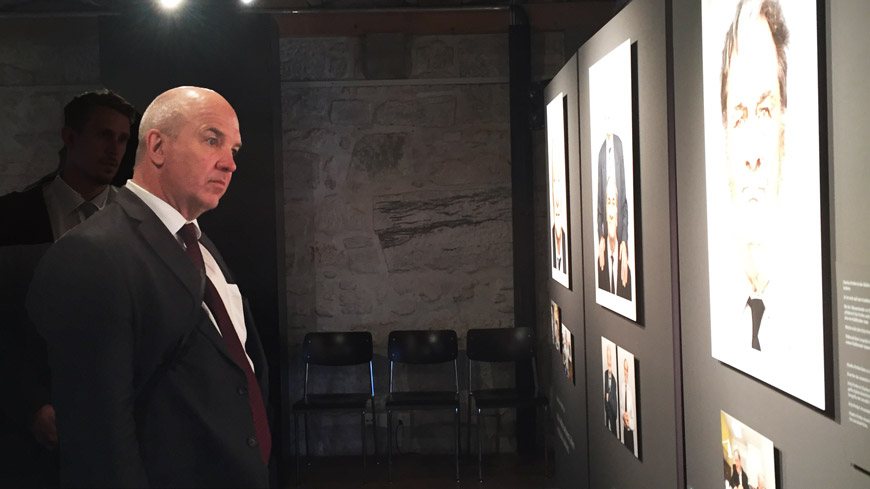Reinforcing the institutional and legal framework for safeguarding and promoting human rights and enhancing the protection of migrants and asylum seekers are the key recommendations addressed to the Swiss authorities by the Council of Europe Commissioner for Human Rights, Nils Muižnieks, in a report published today following his visit to the country in May 2017.
The Commissioner welcomes the new law on asylum, which should result in faster and higher quality procedures for determining refugee status, in particular through the provision of free legal assistance from the outset. Noting that there are plans to revise the rules on temporary admission, which apply amongst others to Syrians who have fled the conflict, the Commissioner calls on the authorities to establish an international subsidiary protection status guaranteeing the same rights as are granted to persons holding official refugee status. “It is unacceptable to place people in a long-lasting difficult and precarious situation that impedes their integration, when they are very likely to stay in Switzerland for a long time. Consequently, the legal restrictions that this status imposes on persons needing international protection should be lifted, especially with regard to geographical mobility, family reunification and social assistance”, said the Commissioner.
Concerning the detention of migrants, the Commissioner calls on the authorities to remove the possibility of administrative detention for migrant children over the age of 15 which is practiced in some cantons. He also asks the Swiss authorities to stop detaining children, with or without their family, in transit zones of international airports. Concerned about cases of parents who have been separated from their children in order to be placed in detention with a view to their deportation, the Commissioner recommends ensuring family unity by ending the separation of families in migration-related procedures. More generally, he recalls that administrative detention should only be used as a last resort, and that alternatives to detention should be promoted.
With regard to the institutional and legal framework for the protection and promotion of human rights, the Commissioner welcomes Switzerland’s decision to set up a national institution for human rights, but recommends broadening its terms of reference as far as possible and guaranteeing its independence by endowing it with its own legal status and adequate human and financial resources. “The insufficient budget and academic approach suggested in the current plan pose significant risks for the effectiveness and independence of the future institution,” stated the Commissioner.
Concerned about the existence of federal popular initiatives likely to weaken the protection of human rights in Switzerland, the Commissioner recommends that the authorities establish a mechanism to monitor the compatibility of popular initiatives with human rights. “It is important to find a solution that makes it possible to preserve the democratic value of popular initiatives while guaranteeing the protection of human rights in Switzerland.”
The Commissioner also asks the authorities to promote social rights, in particular by ratifying the Revised European Social Charter and its Protocol on collective complaints as soon as possible. He also calls on Switzerland to supplement its antidiscrimination legislation and to strengthen its awareness-raising and public service measures to combat all forms of discrimination.
The Commissioner welcomes the adoption of the national action plan on business and human rights, but stresses the importance of ensuring that human rights abuses attributable to Swiss-based companies give rise to civil liability in Switzerland and that there are no undue judicial barriers to civil action by victims abroad.
On the issue of historical human rights abuses in Switzerland, including compulsory social measures, such as administrative detention and forced placements of children, the Commissioner welcomes the establishment of compensation funds and research programmes to redress these abuses. He calls on the Swiss authorities to intensify their efforts to ensure full respect for applicable international standards, in particular by including history teaching about these abuses in school curricula throughout the country. Noting the significant number of Yenish people among the victims of such abuses, the Commissioner also stresses the need to address the disadvantages they continue to suffer in many fields of life by taking targeted policy measures.



